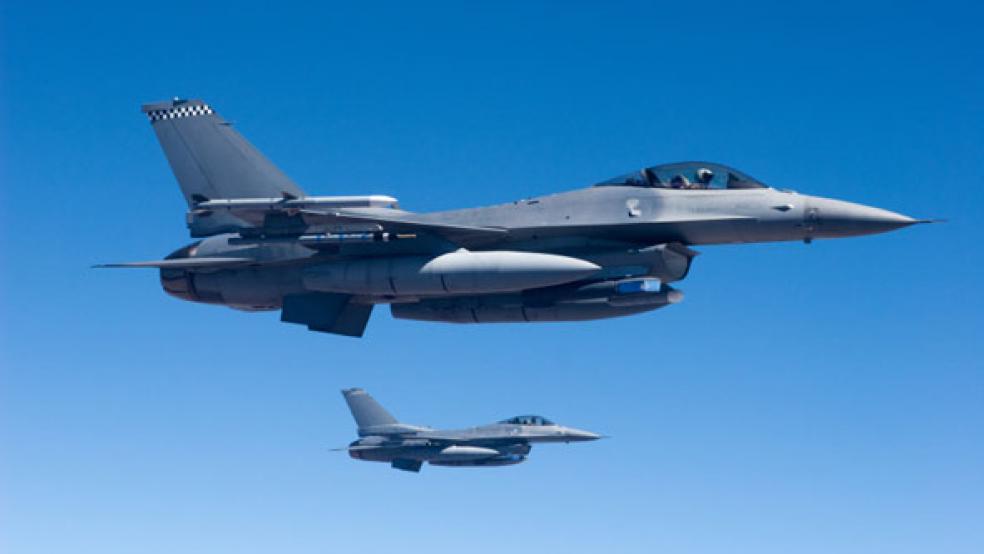Declines in U.S. and European defense spending are putting heavy pressure on thousands of small and mid-sized companies that together build about 70 percent of major weapons systems, top defense and industry officials have warned. They forecast a new wave of consolidation as smaller companies adjust to more austere times, but say some may exit the arms business completely, which could result in bottlenecks and strains in the supply chain for years.

Defense contractors such as Boeing Co, Northrop Grumman Corp and Huntington Ingalls Industries Inc are also demanding ever-better pricing from suppliers as they scramble to cut overhead, consolidate plants and maintain profit margins. Unlike bigger players with diverse portfolios, smaller suppliers often lack the resources to adapt to changing market conditions, especially since many specialize in producing one set of products for a specific program.
Northrop Chief Executive Wes Bush says companies such as his are diversified enough to weather the storm, but uncertainty about future defense budgets is taking a toll on smaller suppliers in the broader industrial base. The sheer scale of disruptions caused by an additional $500 billion in across-the-board U.S. defense cuts that could kick in next year could drive a broad number of suppliers to leave the industry, Bush said. The Pentagon estimates the automatic cuts required under sequestration would shave 11 percent from 2,500 budget line items, requiring changes in thousands of contracts, according to Brett Lambert, deputy assistant secretary of defense for manufacturing and industrial base policy. "It's not ones or twos that worry me," Northrop's Bush said, referring to the top levels of suppliers. "It's when we start to see a broader backing off from the defense supply chain that concerns me because then you take the slack out of the system - and then when you begin to have the one or two problems, you can't fix it."KEEPING CRITICAL SKILLS
Lambert said the Pentagon has developed a detailed database to understand and monitor the challenges facing defense suppliers, with a particular eye to preserving critical skills such as high-tech welding. "A master welder who takes 12 or 13 years to get that status is essential for the Department of Defense," he told Reuters. "Those are the individuals that, once lost, would be very difficult to recover."
RELATED: The Pentagon Mantra: Cut Defense, Slaughter Jobs
Mike Petters, chief executive of shipbuilder Huntington Ingalls, said his company used components from all 50 states to build aircraft carriers and some of those companies were on tenuous ground. "The supply chain has really been under pressure for many, many years," he said.
The slow pace of shipbuilding, with one ship ordered at a time, had already driven many smaller companies out of business, leaving a large number of companies that were the only provider of a given item, he added. About 60 percent of Huntington's suppliers were sole-source providers, with that percentage rising to 80 percent for submarines, Petters said. Many of those companies had put investment decisions on hold until the budget crisis is resolved. "There's a whole lot of anxiety there," Petters added.
Dennis Muilenburg, chief executive of Boeing's defense business, said his company is closely monitoring the health of thousands of suppliers to ensure continued competition and is ready to help on a case-by-case basis.
Airbus, Boeing's European rival, once acquired an ailing German company to make sure it would have a continued supply of components. "I'm not suggesting that we're going to go around purchasing U.S. manufacturers," Airbus Americas President Barry Eccleston said. "But if it looks like one (supplier) is getting into trouble, we'll pay them extra special attention to make sure they stay in business." In rare cases, Boeing, Northrop and others say they could consider acquiring struggling suppliers, but only if such deals made strategic sense, executives said.
COMPETITION, COST IMPLICATIONS
Record commercial production, together with a surge of new competition from China, Japan, Canada and Brazil, is placing further strain on a global supply chain that overlaps between commercial and military customers. Airbus and Boeing are increasing production on all their civil programs. Competition is also heating up with the wind-power industry, among others, for materials and production skills for lightweight carbon composites, used for both aerospace structures and wind turbine blades.
Lambert said the department was trying to intervene in a more targeted manner to preserve critical capabilities, without pumping billions of dollars into orders with prime contractors for weapons systems that were not needed at the moment. "It's hard to reconstitute certain kinds of knowledge," said Christina Chaplain, director of acquisition and sourcing management at the Government Accountability Office.
Industry executives warn that shifts in the supplier base will wind up costing the Pentagon more than they save in the short term, driving up the cost of future weapons programs. Joe McCarthy, vice president and general manager of combat vehicles for BAE Systems, said the Army's plan to temporarily stop building Bradleys could affect 700 suppliers in 45 states, potentially leading to the loss of 800 jobs at the York plant, and 10,000 jobs around the country. He said BAE will survive, but many of its suppliers may not.
Rosario Sciortino, who has spent two decades in purchasing at the York, Pennsylvania plant where BAE builds the Bradleys, said some companies have already told him they plan to "lay off people, shut down their lines, or move into other products." McCarthy estimates that it would cost $750 million to shut down the Bradley line for 36 months. Work on restarting the line would have to begin about 30 months ahead of time to ensure the supplier base was ready to roll, he said.
Future weapons programs will also be more expensive, since overhead would be spread over a far smaller base. Loren Thompson, chief operating officer of the Lexington Institute, said the Pentagon's record of starting and then terminating multiple weapons programs was undercutting the confidence of suppliers in the prospects for future orders.
Erin Moseley, chief lobbyist for BAE Systems, said her company had been working hard to meet the government's cost-cutting goals, but uncertainty about tax rates, budgets and future programs has raised questions about the continued viability of the ground vehicle sector for her company. "At the end of the day, we have to have things to compete for," Moseley said.
(Reporting By Andrea Shalal-Esa and Karen Jacobs)




